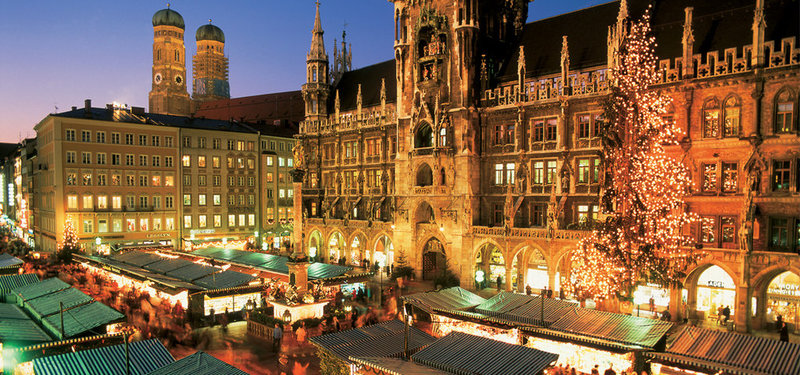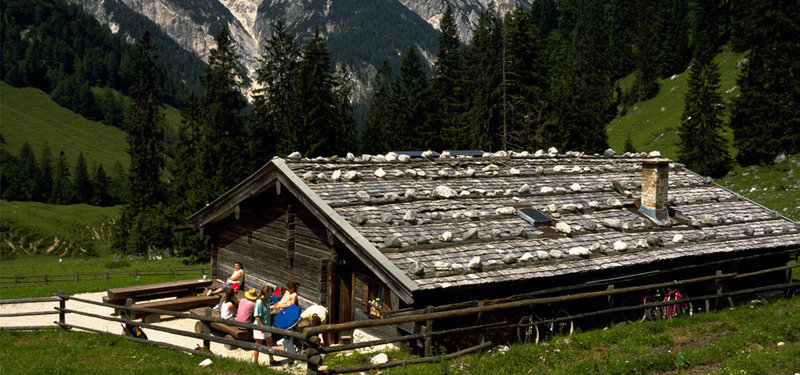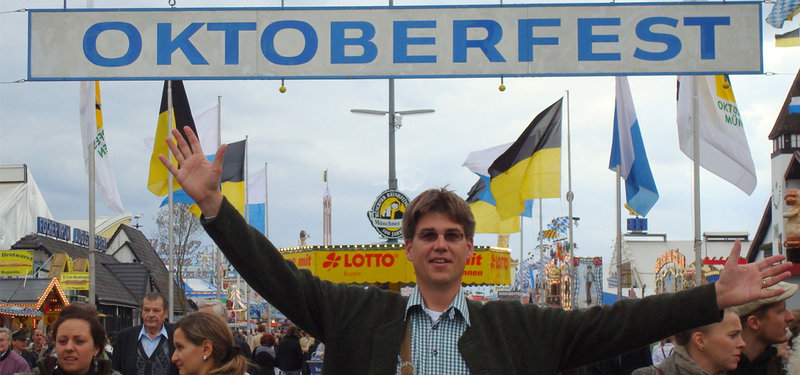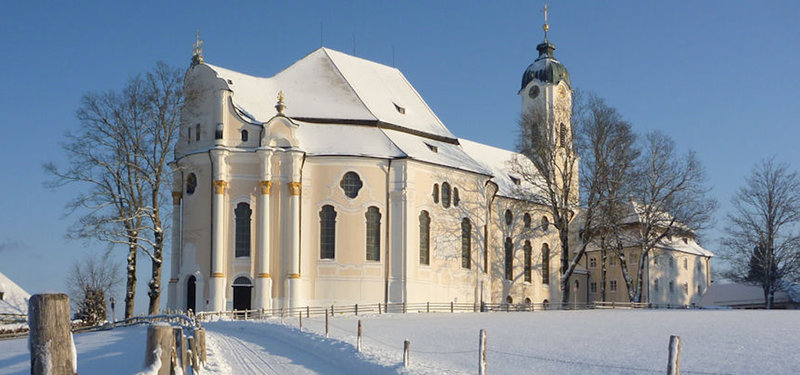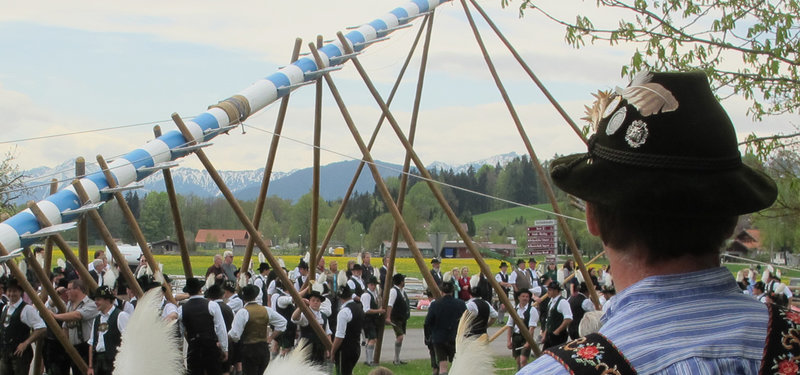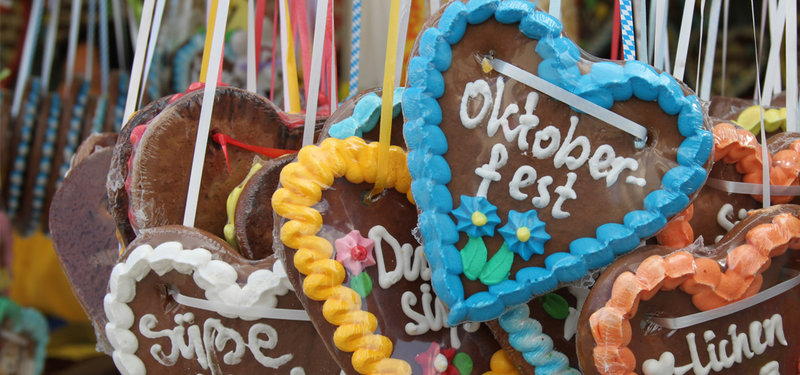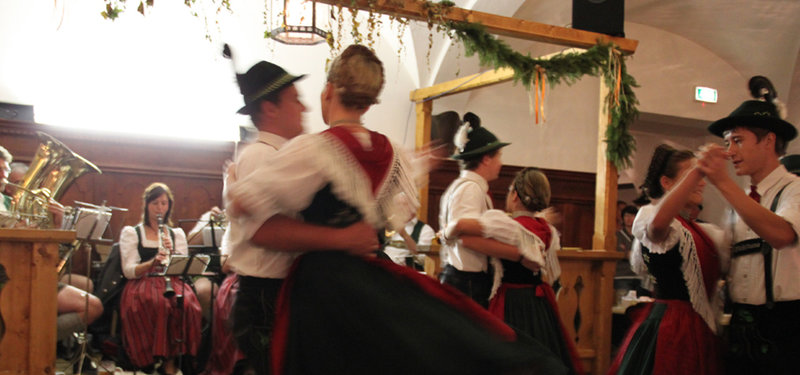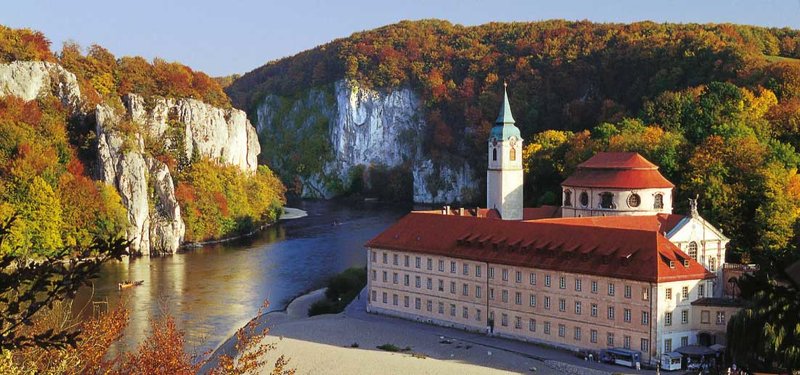The wine industry has done some amazing marketing over the years. We associate wine with fine dining, special celebrations, as well as everyday enjoyment. The wine industry has cultivated the idea that wine is the beverage king, reigning over all others. Beer has risen to the challenge and the industry is now promoting the idea of a “Beer Sommelier.”
And why not? Mainly viewed as an everyday, beverage for every man, beer offers much more. With the plethora of styles that are now readily available, beers trumps wine on all fronts. From fruity Belgian to chocolate stout, and all the back to whiskey barrel aged, beer offers an amazing spectrum of color, aroma, and taste. There is literally a beer for everyone and a beer for every occasion.
Several organizations are promoting Beer Sommelier training, but the Doemens Institut near Munich, Germany is leading the charge. Now with their partnership with the Siebel Institute in Chicago, this quality education is now available to English speakers.
However, if you think the training just consuming a lot of beer, you are mistaken. It’s not easy to become a Beer Sommelier. Domens Institut in Gräfelfing, near Munich, has created a challenging and intensive program to elevate beer industry personnel, hobby brewers, and beer aficionados to a higher, scientific, level of understanding about the beverage they love. At the end of the course, the beer sommelier possesses expert knowledge about the beer production process, beer selection and food pairing, beer quality, proper serving and hygiene and health promotion.
The man behind the effort at the Doemens Institut in Gräfelfing, Germany is Dr. Wolfgang Stempfl . He has been the Managing Director of Doemens e.V. & the Doemens Academy GmbH since 2001. Dr. Stempfl studied Food Chemistry at the University of Munich and holds a PhD from the Technical University of Munich. He developed the “Bier Sommelier ©” program in 2004, and is an internationally-recognized expert in beer judging. During the German-based course, once week takes place in Munich and the second week in Obertrum, Austria, the hometown of the Trumer Brewery. The second half is led by Axel Kiesbye. He was trained at the Technische Universität München-Weihenstephan, and worked at Steigl in Salzburg. He now works at the Trumer brewery in addition to being the operator of the BierKulturHaus in Obertrum. Courses are also offered in Sao Paulo, Brazil and now in Chicago, thanks to the partnership with the Siebel Institute of Technology.
Bier Sommelier Program Details
It’s always good to begin at the beginning, so Dr. Christoph Pinzl, the director of the German Hops Museum in Wolnzach (in the heart of the Hallertau) presented a detailed history of beer. After that introduction, we dove into 2 days of the course on the technical details of the brewing process. How detailed? In the first 90 minutes, we only discussed the brewing water! You can imagine then the depth we got into with hops, malt and yeast!
Our third day was dedicated to discussing the details of tapped beer: CO2, Nitrogen, mixed gas, design and installation of beer dispensing systems, safety, hygiene, and cleaning. After delving into the details, it’s astonishing what all is required of a bar/restaurant to ensure a quality product gets into the customer’s glass!
The next two days were dedicated to lectures on sensory factors of beer: Sight, Smell and Taste. Dr. Stempfl has detailed knowledge on this subject and he tried to impart his knowledge to us. Most interesting was the chemical kit he possesses. With this kit, he is able to add specific aroma and taste to a glass of beer. This helped us to pick out Diacetyl, Dimethylsulfid, Cassis, Lightstruck, and other tastes, aromas, and off-flavors found in beer.
The most fun during the course was just before lunch each day. During this time, we were treated to detailed tastings of various beer styles and were asked to describe the color, clarity, aroma, as taste in excruciating detail. For example, you can’t just say it’s brown and tastes good. Instead, you attempt to create a picture of words to invoke an emotional response: “The rich dark copper color features red highlights and harmonizes with its fine, rich foam … “
Week one in Gräfelfing closed out with two tests on Saturday morning. In the first test, we were presented with 6 different beers: A blond Bock, a Spezial/Export, Kristal Hefe-Weizen, an alcohol free lager, a light lager, and a pilsner. We had to taste each one and correctly identify the style. In the second test, we were given 6 glasses of beer and had to correctly identify off-flavors in the beer – cassis, chlophenol, Lightstruck, etc.
Sunday was an off day to allow us to travel down to Obertrum, near Salzburg, in order to start the second week of our course. At the Bier Kultur Haus, we were asked to create our own beer from scratch and brew it. I was assigned to the marketing team and we had the task of setting the parameters of the beer. Since our beer will be ready in April/May, we naturally thought of Maibock, but wanted to offer something out of the ordinary. We settled on a Weizen Bock designed to invoke thoughts of spring. We used American aromatic hops and added coriander to the beer which we named “Strong Spring.” The whole brewing process took us about 7 hours and the beer should be ready for consumption in early May. We are hoping to have an open tasting at the Alchemiste Belge in Salzburg.
During the balance of the week, a variety of topics were presented: Beer Market & Marketing, Beer & Glass Culture, Beer Cocktails, Building Beer Menus , Beer, Alcohol and the Law, Psychological Factors Affecting Beer Consumption, Beer Trends & Future Prospects, Beer and Cheese, Beer and Chocolate, Cooking with Beer, highlighting Beer in Gastronomy, Tapping and Pouring Beer and Cellaring & Aging Beer. All of the topics were extremely interesting, but the ones that made the biggest impression on me were “Beer and Health,” and the cooking topics. In Beer and Health, for example, we explored how beer, even more so than wine, can improve your health. One liter of beer per day for a typical adult male has very positive effects on overall health – better than abstinence. However, increasing consumption beyond one liter per day has negative outcomes.
Cooking with beer and pairing beer with various foods was new territory for me and I thoroughly enjoyed these topics. Pairing various beers with food is largely an intuitive process: A lighter beer with lighter food and a heavier one for more weighty courses. But, it quickly gets more complicated. Interestingly, we had to try various beer styles with the following foods: Lemon slice (sour), heavily salted bread (salty), chicory (bitter), sugary cake (sweet), and bread loaded with Chili pepper flakes (spicy). For each beer style, we had to analyze the effect on the food and beer. For example, sweet and sour, and spicy and bitter are often good flavor pairings.
We also sampled several beers with various cheeses and with chocolate. Beer and cheese, for example, is an amazing combination – much better than wine and cheese. With the right beer, usually a rich Belgian sort, and a flavorful cheese, the flavors comingle for a taste explosion. Beer and chocolate is not something I would typically go, but many of the Belgian styles of beer paired extremely well with the Swiss chocolates we tried.
Also during the second week we had two written tests and two homework assignments. The written assignments consisted of developing a detailed beer menu and the conceptualization of a beer event. I created a “Top 10” beer list for my visitors to Bavaria as my beer menu and worked with a small group on Geo-caching beer event. In addition to the daytime activities, we also had several field trips. We were treated to private tours at the Bier and Oktoberfest Museum in Munich, the Trumer brewery, and the Stiegl brewery.
The course was an amazing experience – rich with information and sensory training. However, the most fun was getting to know the other 18 participants which included many brewery personnel, hobby brewers and people involved in gastronomy.
If you have an interest in raising your beer knowledge to a higher level, I recommend that you participate in the program. Keep in mind that the courses in Munich are only presented in German, but are now offered in English at the Siebel Institute in Chicago. Sign up early – spaces go quickly! More information can be found at http://www.siebelinstitute.com/


